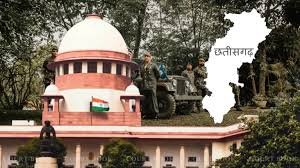Why in the News?
- The Union Home Ministry, in an affidavit before the Jammu & Kashmir and Ladakh High Court, stated that the Lieutenant Governor (LG) of J&K can nominate five members to the Legislative Assembly without the aid and advice of the Council of Ministers.
- This has revived debates about the role of LGs in UTs with legislatures and the constitutional principle of democratic accountability in such regions.
Key Highlights
- Constitutional Provisions on Nominations
- Nominations to Lok Sabha and State Assemblies (Discontinued in 2020)
- Article 331 (Now repealed): Allowed the President to nominate up to two members of the Anglo-Indian community to the Lok Sabha if he/she believed they were not adequately represented.
- Article 333 (Still present but inactive): Allowed the Governor to nominate one Anglo-Indian member to the State Legislative Assembly.
- Nominations to Lok Sabha and State Assemblies (Discontinued in 2020)
- These provisions were removed by the 104th Constitutional Amendment Act, 2020.
- Nominations to Rajya Sabha
- Article 80(1)(a) and 80(3): The Rajya Sabha can have up to 12 nominated members, appointed by the President from persons having special knowledge or practical experience in literature, science, art, and social service.
- Nominations to State Legislative Councils (Vidhan Parishads)
- Article 171(3)(e) and 171(5): In States with bicameral legislatures, the Governor can nominate 1/6th of the total members to the Legislative Council from people distinguished in fields like literature, science, art, cooperative movement, and social service.
- Provisions for Union Territories with Assemblies
- The Government of Union Territories Act, 1963 governs the Puducherry Assembly, allowing the Union government to nominate up to three members.
- The Government of NCT of Delhi Act, 1991 provides for only elected members (70), with no provision for nominations.
- The J&K Reorganisation Act, 2019 (amended in 2023) provides for:
- 90 elected seats in the J&K Assembly.
- Nomination of five members by the LG: two women, two Kashmiri migrants, and one displaced person from Pakistan-occupied Kashmir.
- Judicial Precedents and Interpretations
- In Lakshminarayanan v. Union of India (2018), the Madras High Court upheld the Union government’s authority to nominate three members to the Puducherry Assembly without consulting the Council of Ministers.
- It recommended statutory clarity but the Supreme Court later set aside these recommendations.
- In Government of NCT of Delhi v. Union of India (2023), the Supreme Court articulated the ‘triple chain of command’:
- Civil servants report to Ministers.
- Ministers are accountable to the Legislature.
- Legislature is accountable to the electorate.
- J&K’s Special Constitutional Context
- Jammu & Kashmir was a full-fledged State with special autonomy under Article 370 until 2019.
- Post-reorganisation into a UT, the LG’s powers and the democratic structure of the new Assembly have come under scrutiny.
- The Union government has told the Court that statehood will be restored at the earliest.
- Democratic Principles and Federal Balance
- In UTs with elected Assemblies, the Council of Ministers represents the democratic will of the people.
- Nominations without their advice may violate federal and democratic norms.
- In small Assemblies like Puducherry and J&K, even a few nominated members can influence the majority–minority status, thus affecting governance outcomes.
Implications
- Constitutional and Legal Precedents
- Sets the stage for wider debates on the balance of power between LGs and elected governments in UTs.
- May trigger fresh interpretations of Articles related to federalism and representative democracy.
- Democratic Accountability
- Weakening the role of elected Councils of Ministers could dilute the people’s mandate.
- Encouraging nomination by LGs without elected government’s advice undermines representative governance.
- Impact on Legislative Functioning in UTs
- Nominated members can shift legislative majorities, particularly in smaller Assemblies.
- This can alter the outcome of floor tests, budget votes, and confidence motions.
- Centre-State/UT Relations
- Political differences between the Union government and UT governments may lead to friction over nominations.
- Central dominance over legislative composition could erode UTs’ functional autonomy.
- Reorganisation and Transition in J&K
- As J&K transitions from UT back to statehood (as promised by the Centre), the norms governing legislative functioning must reflect democratic maturity.
- Continuing central control over nominations may hinder public trust in institutional restoration.
Challenges and Way Forward
| Challenges | Way Forward |
| Ambiguity in legal provisions for nomination | Introduce statutory clarity on the nomination procedure |
| Lack of uniformity across UTs | Enact a model law applicable uniformly to all UTs with Assemblies |
| Excessive discretion with LGs | Mandate consultation with or binding advice of Council of Ministers |
| Risk of political misuse in small Assemblies | Impose limits on the voting powers of nominated members |
| Delayed restoration of statehood in J&K | Ensure time-bound fulfilment of promise and democratic safeguards |
Conclusion
The issue of nominating members to Union Territory Assemblies, especially in regions like J&K and Puducherry, raises crucial questions about democratic governance and federalism. While legal provisions may allow the LG or Union government to act unilaterally, the spirit of representative democracy demands that such powers be exercised with the advice of elected governments. A consistent, transparent, and democratic procedure for nominations—anchored in constitutional morality—is essential to strengthen trust in the institutions of governance.
| EnsureIAS Mains Question Q. The practice of nominating members to Union Territory Legislative Assemblies by the Lieutenant Governor without the aid and advice of the Council of Ministers raises concerns over democratic accountability and federal balance. Critically examine this practice in light of the constitutional provisions, statutory frameworks, and recent judicial pronouncements. (250 words) |
| EnsureIAS Prelims Question Q. With reference to the nomination of members to the Legislative Assemblies in India, consider the following statements:1. The President can nominate two Anglo-Indian members to the Lok Sabha under Article 331.2. The Lieutenant Governor of a Union Territory with a legislature can nominate members to the Assembly without the aid and advice of the Council of Ministers. 3. The Government of Union Territories Act, 1963 allows for nomination of members to the Puducherry Legislative Assembly. 4. The Supreme Court has held that nominated members to Union Territory Assemblies must always be appointed based on the advice of the Council of Ministers. Which of the above statements is/are correct? a. 1 and 3 only Answer: d. 3 only |





